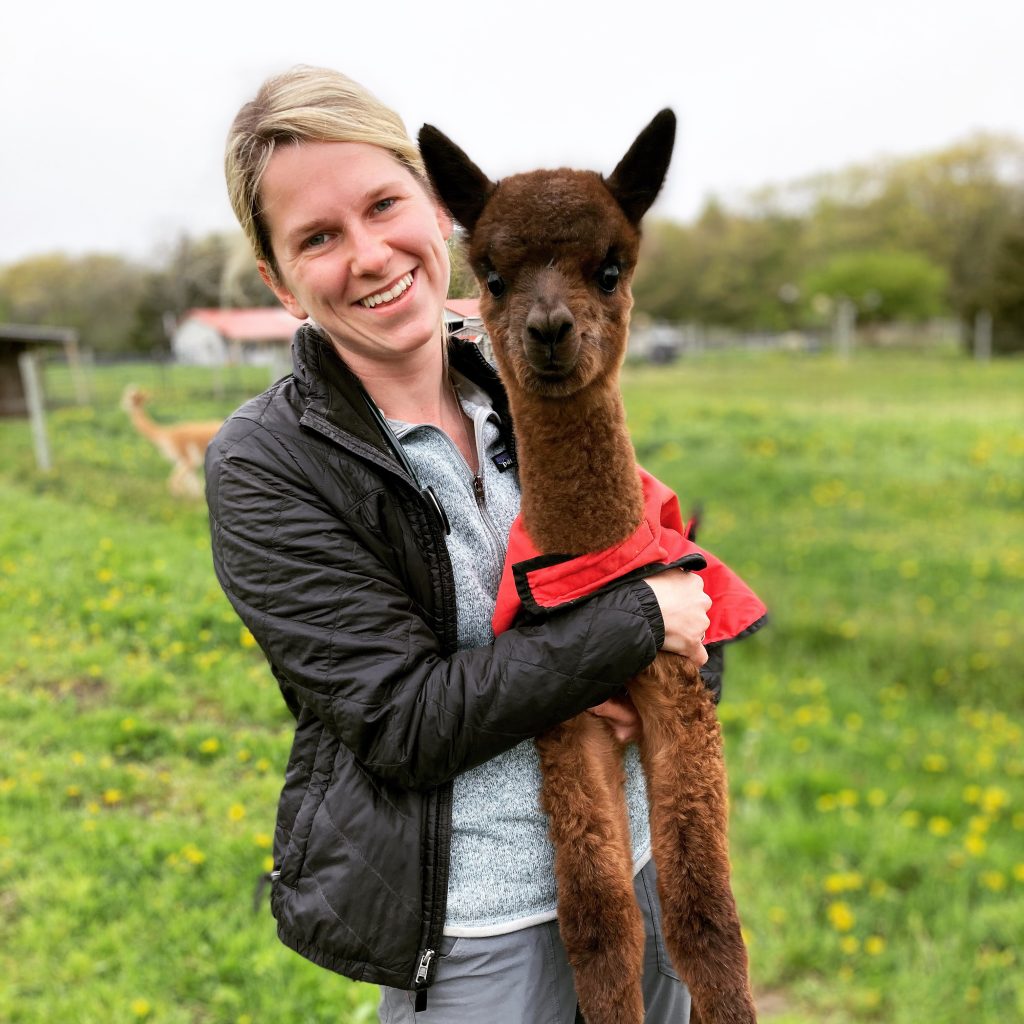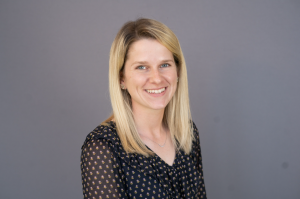
As a teenager growing up in suburban Philadelphia, Molly Rogus didn’t have neighbors who were dairy farmers, but she quickly found an interest in agriculture, animals and veterinary medicine through her school’s 4-H program.
“I grew up on a cul-de-sac in the suburbs of Philadelphia. There were not a lot of dairy farms around me. There was enough agriculture around me, though, that I got involved in 4-H,” she shared. “They had a vet clinic class, and I was so much more fascinated by the farm animal world than dogs and cats.”
After her exposure in high school, Molly decided to study animal science at The Pennsylvania State University. Never having worked on a dairy farm, Molly wanted to take it a step further throughout her college career and decide if she was on the right path. She decided to complete an on-farm internship in the summer of 2015 on Vista Grande Farm LLC in Berks County, PA to gain large animal experience on a modern, working dairy farm.
“I had no experience, so that was the first farm where I really learned what it means to run a dairy. I started from ground zero. Learning how to milk the cows and figuring out the order you move the milkers was even daunting,” Molly said. “Now that I’m going into dairy production medicine, that internship was so crucial. If you don’t know the lingo and the way dairies are run, it’s really hard to step in as a vet. Having that foundation was a really good skillset.”
Gaining hands-on experience during the on-farm internship not only solidified Molly’s interest in the dairy industry, but it motivated her to pursue additional learning experiences. Throughout college, she interned with an equine reproduction veterinarian and completed research with a bovine reproduction physiology lab.
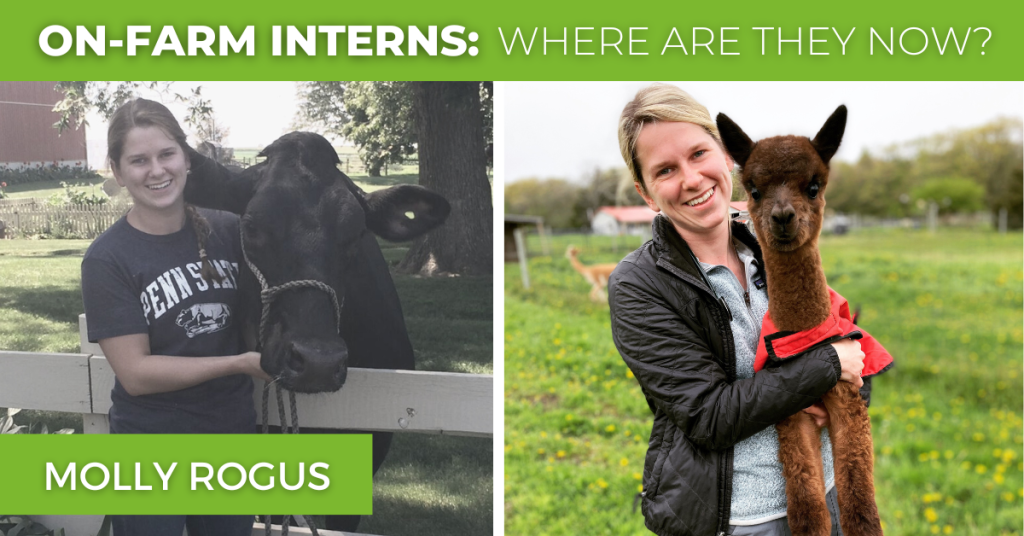
Molly graduated from Penn State in 2018 and immediately started vet school at Cornell University’s College of Veterinary Medicine. From working as a student milker and in the large animal hospital to riding with their ambulatory service and gaining hands-on experience during her clinical year, Molly had vast amounts of dairy exposure. She says she gained a deep respect for the work ethic and knowledge that goes into running a successful dairy operation.
“I saw what has to get done in a day and how much dairy producers know about their operations, their cows and the markets at large. It’s a really underrated profession in terms of the responsibilities and capabilities necessary for it,” Molly added. “Seeing the day-to-day work and being hands-on made me really respect that line of work. It really solidified my desire to work with those people in this industry.”
After graduating from vet school in the spring of 2022, Molly moved to Wisconsin in June to work at a large veterinary practice. While she works with horses, sheep and goats, 70-80 percent of her work is with dairy cows. Her passion and heart for the industry is evident to this day.
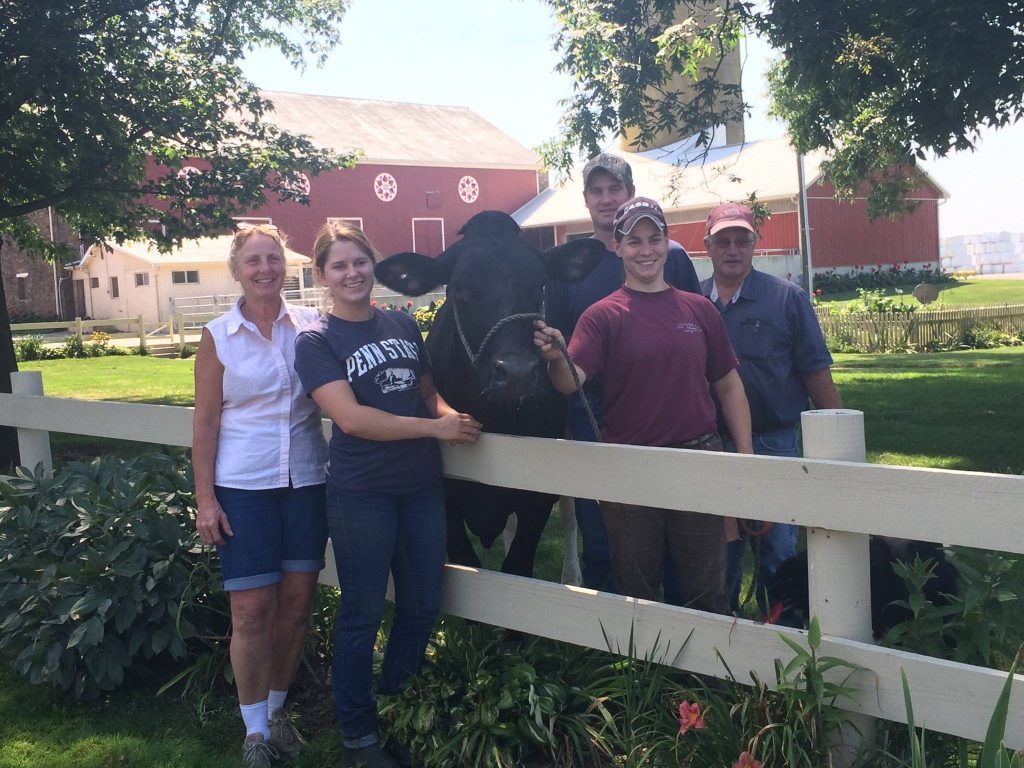
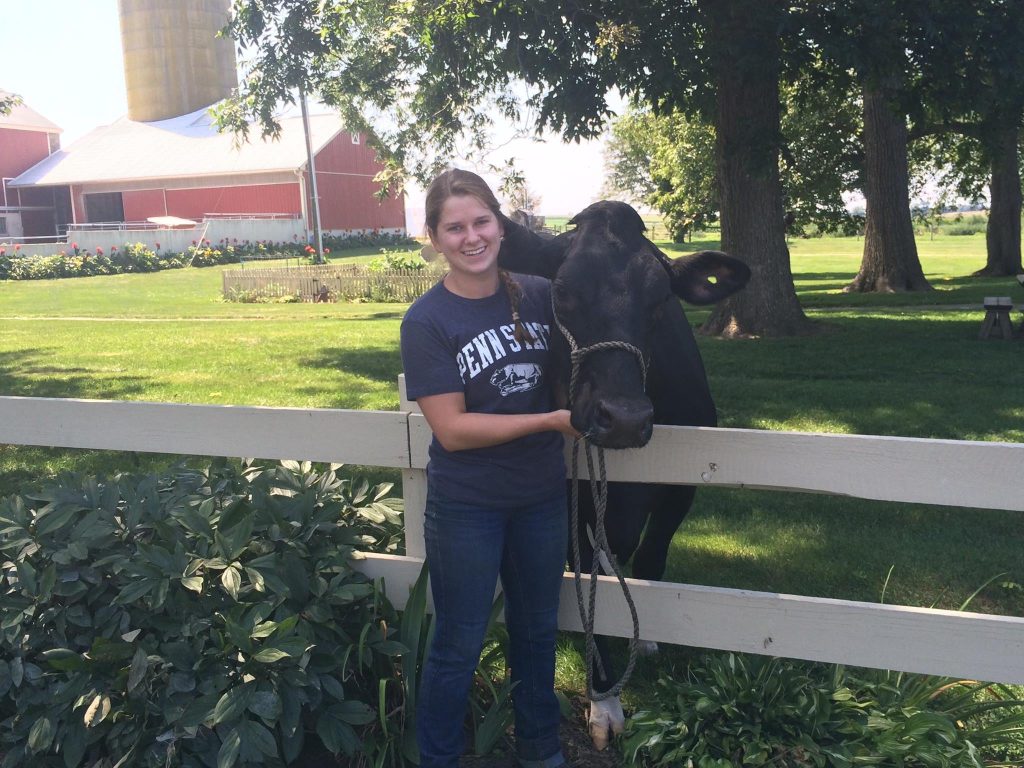
“From a medicine standpoint, I find the dairy cow very fascinating. We ask her to do so much, and she delivers so much, so the physiology and function behind milk production is really fascinating,” Molly shared. “I also just respect the hard work that goes into running a dairy and the intelligence that goes into running it successfully. That’s what drives me going into the industry.”
Thanks to the initial on-farm internship experience that sticks with her to this day, Molly encourages other college students to consider taking advantage of the program.
“For anyone who wants to be involved in dairy in any capacity, I think doing the boots-on-the-ground work is so essential. I just respect the on-farm internship program so much because it was an essential avenue for my learning,” she added.
The Center for Dairy Excellence Foundation, the Professional Dairy Managers of Pennsylvania, and the Pennsylvania Dairymen’s Association provide $3,000 grants to support the on-farm internship program each summer. Learn more.
